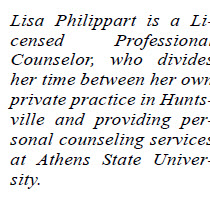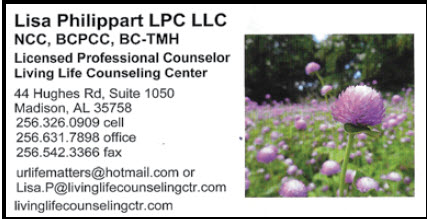 By: Lisa Philippart
By: Lisa Philippart
Do you struggle with comparing yourself too much with other people? Maybe you feel insecure at work, in romantic relationships, or just across the board. Whatever form your unhealthy social comparison takes, I’m sure you’re more than familiar with all the negative side effects that go with it: anxiety, low self-confidence, relationship conflict, imposter syndrome, low self-esteem, etc. The good news is that ultimately unhealthy social comparison is a habit. And regardless of why that habit formed or how strong it is now; all habits can be changed. But in order to break free from the habit of chronic social comparison, it’s important to be clear on why you do it in the first place. In the rest of the article, we will look at the reasons people tend to compare themselves too much to others, and offer some tips on what to do about it.
Human beings are social creatures in the sense that complex relationships and social communication were and are key to our survival and flourishing as a species. We are surprisingly good at working together (usually!) This capacity for coordination depends on being attuned to what other people are thinking and feeling. For our ancestors, their survival depended on being aware of things like social hierarchies and status; in other words, how you compared with others. Consequently, it is completely normal to compare yourself with other people. Of course, this tendency can be taken to unhealthy levels. But if you want to rein in your harmful social comparisons to more reasonable and healthy levels, the key is to validate it rather than criticize it. Most people who get stuck in the social comparison struggle are often judgmental and critical of themselves. Try this: Recognize the urge to compare yourself to others rather than condemning yourself for it.
 Deep down, the habit of damaging social comparisons is almost always a defense mechanism against uncertainty. For example, maybe you struggle a lot during team meetings at work. When the meeting starts, your mind gets flooded with thought like: “Am I doing enough? Cheryl is always so confident. Tim is working on three projects while I can barely handle one.” Underneath these thoughts about how you stack up compared to your coworkers, is the assumption that you should have the answers. You should be as confident as Cheryl. You should be doing more projects. But that’s totally unrealistic. There will always be a good amount of uncertainty about your performance or confidence. That’s not something you can change. No amount of obsessive worrying is going to eliminate your feelings of uncertainty. The solution is to come to terms with uncertainty. The next time your start comparing, ask yourself: “What am I really worried about right now? What uncertainty am I trying to eliminate?” Uncertainty may feel bad, but that doesn’t mean it is bad. Acknowledge and validate your uncertainty. You may find you don’t need to compare.
Deep down, the habit of damaging social comparisons is almost always a defense mechanism against uncertainty. For example, maybe you struggle a lot during team meetings at work. When the meeting starts, your mind gets flooded with thought like: “Am I doing enough? Cheryl is always so confident. Tim is working on three projects while I can barely handle one.” Underneath these thoughts about how you stack up compared to your coworkers, is the assumption that you should have the answers. You should be as confident as Cheryl. You should be doing more projects. But that’s totally unrealistic. There will always be a good amount of uncertainty about your performance or confidence. That’s not something you can change. No amount of obsessive worrying is going to eliminate your feelings of uncertainty. The solution is to come to terms with uncertainty. The next time your start comparing, ask yourself: “What am I really worried about right now? What uncertainty am I trying to eliminate?” Uncertainty may feel bad, but that doesn’t mean it is bad. Acknowledge and validate your uncertainty. You may find you don’t need to compare.
 For whatever reason, you may have just gotten into the habit of constantly comparing yourself to other people decades ago. And because that habit hasn’t been updated or modified, it’s just grown stronger with every passing day and year. So, while it is important to acknowledge and understand the reasons behind your social comparisons, it is not sufficient for lasting change. Changing any kind of habit is going to be work. It will require effort, patience, and time. Here’s the plan going forward: Acknowledge to yourself when you’re feeling the urge to compare yourself to others. Validate that urge as normal and give yourself a little compassion. Intentionally refocus your attention on what really matters to you in the moment. Each time your mind wanders back to the comparison, gently bring it back to the task at hand. My hope is that you begin to alter your thinking to feel better and adjust your behaviors in a more positive, productive way.
For whatever reason, you may have just gotten into the habit of constantly comparing yourself to other people decades ago. And because that habit hasn’t been updated or modified, it’s just grown stronger with every passing day and year. So, while it is important to acknowledge and understand the reasons behind your social comparisons, it is not sufficient for lasting change. Changing any kind of habit is going to be work. It will require effort, patience, and time. Here’s the plan going forward: Acknowledge to yourself when you’re feeling the urge to compare yourself to others. Validate that urge as normal and give yourself a little compassion. Intentionally refocus your attention on what really matters to you in the moment. Each time your mind wanders back to the comparison, gently bring it back to the task at hand. My hope is that you begin to alter your thinking to feel better and adjust your behaviors in a more positive, productive way.
By: Lisa Philippart
Licensed Professional Counselor










 June 20, 2025
June 20, 2025



